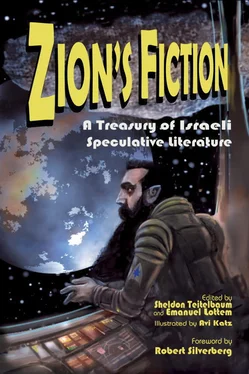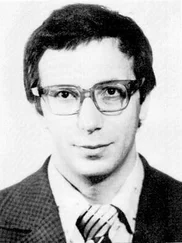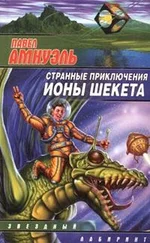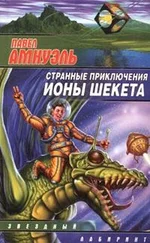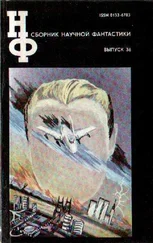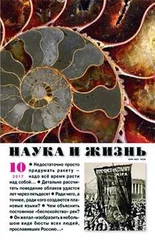There was no room in this scheme for freeloaders, including people who wished to write about imaginary worlds or predicaments. They had no moral right to pursue their idiosyncratic leanings; what they should write about must relate directly to the building of the new nation. Criticizing its faults in their stories was allowed, even encouraged; extolling it was still more welcome. Divert from these options, and no one would publish or indeed read your work.
Furthermore, the leadership of the highly politicized Yishuv, the Jewish community in prestate Mandatory Palestine, had become, since the turn of the twentieth century, increasingly socialist in orientation. By the late 1920s the political domination of the labor movement was nearly complete. The significance of this in the present context lies in the fact that both socialism and Zionism put a great emphasis on the role of intellectuals in the shaping of a new society—with a new culture and a new kind of people—and the combination of these two ideologies tended to make this emphasis even stronger.
Well before the Jewish state came into being, therefore, Israeli writers were expected to render the outlandish fantasy of a Jewish homeland in starkly mimetic, or naturalistic, literary terms. This is an activity commonly referred to by fantasy and science-fiction writers (that is, when they don’t avoid it as a tiresome cliché) as worldbuilding. [9] See Jeff Vandermeer and Jeremy Zerfoss, Wonderbook: The Illustrated Guide to Creating Imaginative Fiction (New York: Abrams Image, 2013).
Yet this necessity, paradoxically, required stripping a then-fifty-year-old body of Hebrew literature of its artificial biblicism, its romantic strivings, its unduly nostalgic, unrealistic, idealized concerns and tropes. These characteristics, some argued, had rendered nineteenth-century Hebrew literature dangerously escapist. To counter this tendency, ideology demanded that writers, poets, and other artists depict the Zionist mission—as unlikely and fraught an undertaking as the Exodus from Egypt—with all the grit and realism they could muster.
Ideological control was rather exacting, even though few would say it aloud. The Yishuv had always been a democratic polity, and theoretically any artist, poet, author, or thinker enjoyed complete freedom of expression. Yet social pressures were overwhelming: it was the intellectuals’ sacred duty to inspire and be inspired by the common venture, enrich and if so inclined criticize it, and above all imbue the younger generation with the values, attitudes, and aspirations of their elders. Deviation from this role was frowned upon, sometimes fiercely, and on a more practical level, those not inclined to hew to such strictures could hardly find the means (for instance, a publishing house) of reaching out to the general public. Institutional publishers with telling names like Am Oved (“A Working People”) or Sifriyat Po’alim (“Laborers’ Library”) had very clear agendas. But even private-sector, bourgeois publishers regarded themselves as part and parcel of the Zionist enterprise.
Thus developed a cohort of gatekeepers that effectively controlled the Yishuv’s cultural output: publishers, literary magazines’ and journals’ editors, literary critics, professors of literature, and so on. This small but highly influential group had a final say over what the public could read, and steeped as they were in ideology, Zionist-socialist or just Zionist, their say was practically final.
Needless to say, aversion to speculative literature was but one of the gatekeepers’ endearing qualities; in fact, it was quite a marginal facet of their overall control, since they had very few cases to contend with in that sphere. Much more than that, they were the keepers of ideological and moral purity. [10] Some cases in point for this kind of bowdlerism include a 1938 translation of Lawrence’s Lady Chatterley’s Lover with no sex scenes and a 1924 translation of Wallace’s Ben Hur from which all references to Jesus and Christianity (including, of course, the subtitle, A Tale of the Christ ) were carefully expunged.
Consider the case of Dr. Yaacov Winshel (1891–1980), a well-known physician who also dabbled in writing. In 1946 he authored a novella, The Last Jew , which offered up one of the first postwar alternative history scenarios postulating a Nazi victory in World War II—a forerunner of what would become a distinguished SF subgenre. Winshel was able to find only a minor publisher for this work, which was simply ignored by the Yishuv’s literati. Ironically, the reason for this cold shoulder had little to do with the novella’s literary quality, nor even its genre affiliation. Alas, Winshel was a prominent member of the Revisionist movement, a disciple of its leader, Ze’ev Jabotinsky. The Revisionists were Labor Zionists’ mortal enemies (sometimes literally so); therefore, Winshel’s writings remained firmly outré.
Although susceptible to a secular messianism that promised redemption through national renewal, the Labor Zionists in those days turned their backs on the mystical, supernatural aspects of the Hebrew Bible. They had no use for miracle-ridden Hassidic lore. Yet they also despised outright the supposedly more rational Judaism professed by the Mithnagdim, the fervently religious but excessively dogmatic opponents of Hassidism. They believed that religiosity in all its guises had helped instill and perpetuate Jewish rootlessness, passivity, frailty, hyper-intellectuality, dependence, and helplessness, brought to its horrific culmination in the Holocaust. Instead, the founders focused on geographical, historical, and archaeological accounts of a continuous Jewish presence in the Holy Land that could, they believed, ultimately be validated by empirical means.
Not surprisingly, speculative literature—what the rest of the world commonly referred to as fantasy, science fiction, and horror—did not have any kind of place in the world of Hebrew-language belles lettres, or even in what counted as popular literature. Certainly, some Israelis read commercial fiction in translation or in the original language of publication, and this may have included some SF/F. But indigenously produced genre fiction, mainly in the form of the particularly low-rent, originally Yiddish, offshoot of pulp fiction called shundt , “trash,” held no possible relevance to the ongoing effort of building up the nation and consolidating its gains—or to the attempt to accrete a vibrant Hebrew corpus of literature. Consequently, it found neither reputable publishers nor widespread readership.
According to Hebrew University sociologist Nachman Ben-Yehuda, an expert on social deviancy, Israel’s cultural commissars designated science fiction as a particularly egregious example of cultural inauthenticity. [11] Nachman Ben-Yehuda, “Sociological Reflections on the History of Science Fiction in Israel,” Science Fiction Studies 13 (1986): 75.
Apparently unaware that Herzl had modeled his utopian novel Altneuland on Theodor Hertzka’s utopian work Freiland , while seeking to emulate the success of American protosocialist Edward Bellamy’s 1888 bestseller Looking Backward: 2000–1887 —a genre classic of no uncertain stature—they regarded SF/F as a childish distraction.
Ironically, some of these very same people had championed the wholesale importation of Russian, particularly Soviet, literary forms and tropes that had informed their evolution as revolutionaries. The more left-wing ideologues among the Yishuv’s literary gatekeepers saw a parallel between Labor Zionism’s nation-building enterprise and the supposed success of the efforts to create a Workers’ Paradise in the USSR.
These proclivities extended as well to the types of books selected for translation into Hebrew. To be sure, publishers were expected to import, translate, and publish works from the accepted Western literary canon. Otherwise, they published books that ostentatiously reflected the supposedly uplifting, revolutionary spirit of the times in the Soviet Union (yet another form of wild fantasy, in retrospect) or the perceived decadence of its adversaries. In a publisher’s note added as a postscript to the Hebrew translation of Allen Drury’s Advise and Consent , for instance, the publishers (the aforementioned Sifriyat Po’alim) felt duty-bound to explain to their readers—this as late as 1960—that “the author purported reassuringly to show us the triumph of the spiritual-moral strength of the spokesmen for that great nation [the United States], but truthfully, he gave us reason for much anxiety. It turns out that even the honest and decent ones among them are consumed by hatred [of the Soviet Union],” and so on.
Читать дальше
